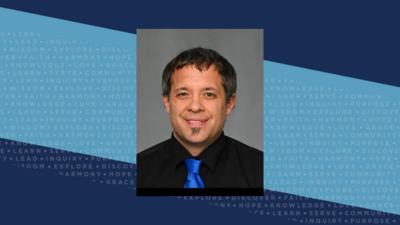Nurturing Growth: The Role of Assessment in Early Childhood Education

In early childhood education, learning is deeply intertwined with play, observation and relationship-building, which means assessment plays a critical role. Far from being merely a tool for grading or benchmarking, assessment in early childhood is a dynamic process that helps educators understand how young children grow, learn and thrive. It informs instruction, guides interventions, supports family communication and ultimately ensures that each child receives the support they need to meet their fullest potential.
At Concordia University, Nebraska, the Master of Education in Early Childhood Education prepares educators to use assessment thoughtfully and purposefully, equipping them with the knowledge and skills needed to serve young learners with excellence, compassion and Christ-centered care.
Understanding the Purpose of Assessment
Assessment in early childhood education differs significantly from the standardized testing that dominates later grades. In preschool and early elementary classrooms, assessment focuses on the whole child, including their cognitive, physical, social, emotional and spiritual development. Teachers may observe a child’s problem-solving strategies during block play, note how they interact with peers during group activities or collect drawings and early writing samples to gauge literacy growth.
These informal, formative assessments are woven into daily classroom routines and allow educators to make real-time decisions about how to adapt learning experiences. More formal tools, such as developmental checklists and standardized screening instruments, offer additional insights and can help identify areas where a child may need further support.
Above all, early childhood assessment is not about labeling children or limiting their potential, it’s about understanding them better so that teaching can be more intentional, responsive and meaningful.
The Role of Relationships
Effective assessment in early childhood relies on strong relationships. Young children learn best in environments where they feel safe, seen and supported. When teachers take time to build trust with each child and their family, assessment becomes more accurate and more holistic. Families bring valuable insights into their children’s strengths, struggles and cultural context, which can and should inform the assessment process.
Concordia’s M.Ed. in Early Childhood Education emphasizes the importance of relationships in assessment. The program trains educators to collaborate closely with families, caregivers and other professionals, recognizing that assessment is most effective when it’s part of a partnership.
Using Assessment to Guide Instruction
Assessment is not an endpoint. When teachers understand where a child is developmentally, they can design experiences that scaffold learning and provide just the right level of challenge. For example, a teacher might notice that a child is beginning to recognize letters but struggles with letter sounds. With this knowledge, the teacher can introduce playful, targeted activities to support phonemic awareness.
Concordia’s graduate program prepares educators to analyze assessment data and apply it in meaningful ways. They learn to create lesson plans that respond to individual learning needs, support differentiated instruction and monitor progress over time. This reflective, data-informed approach ensures that each child receives the nurturing support they need to succeed.
Ethics and Equity in Assessment
Assessment practices must also be developmentally appropriate, culturally sensitive and ethically grounded. Young children should not be subjected to high stakes testing environments or expected to perform beyond their developmental capabilities. Instead, assessment tools should honor children’s abilities and learning styles.
Concordia University, Nebraska grounds its early childhood education program in a Christian worldview that values each child as a unique creation of God. Educators learn to approach assessment with humility, integrity and care, ensuring that all children are treated with dignity and given equitable opportunities to grow.
Preparing Educators for Excellence
The M.Ed. in Early Childhood Education at Concordia is designed for educators who want to deepen their understanding of child development and enhance their ability to serve young learners. With a curriculum rooted in research, best practices and Christian values, the program equips teachers to become leaders in early childhood settings.
In early childhood education, assessment is more than a method—it’s a mindset. It requires curiosity, compassion and a deep commitment to understanding each child as a whole person. In Concordia University, Nebraska’s M.Ed. in Early Childhood Education program, educators are trained not only to assess but to use assessment as a foundation for responsive teaching, family partnership and faithful service. In doing so, they help ensure that every child is known, valued and empowered to flourish.
Interested in Concordia University, Nebraska's Master of Education in Early Childhood Education program?
Related Stories


